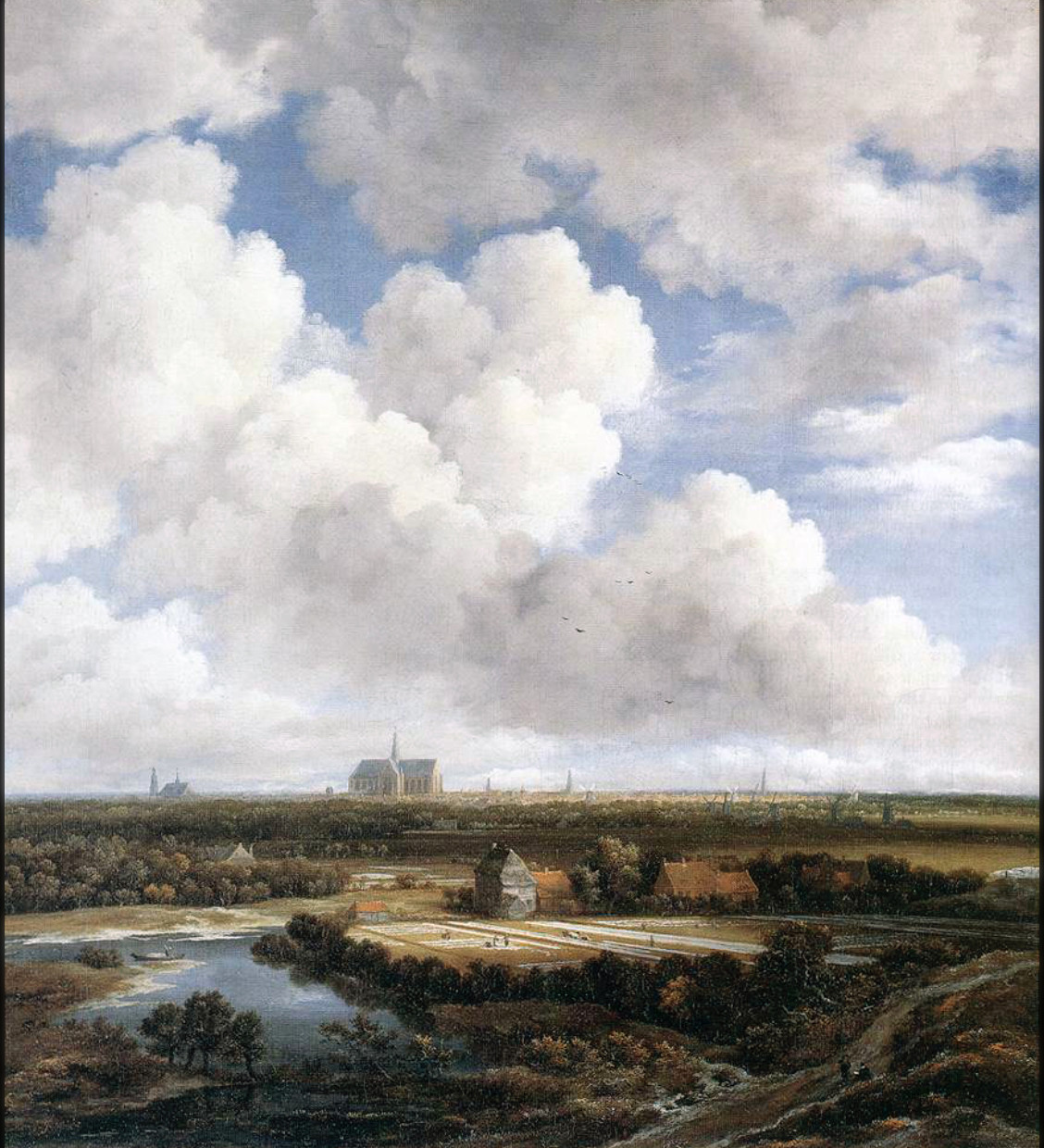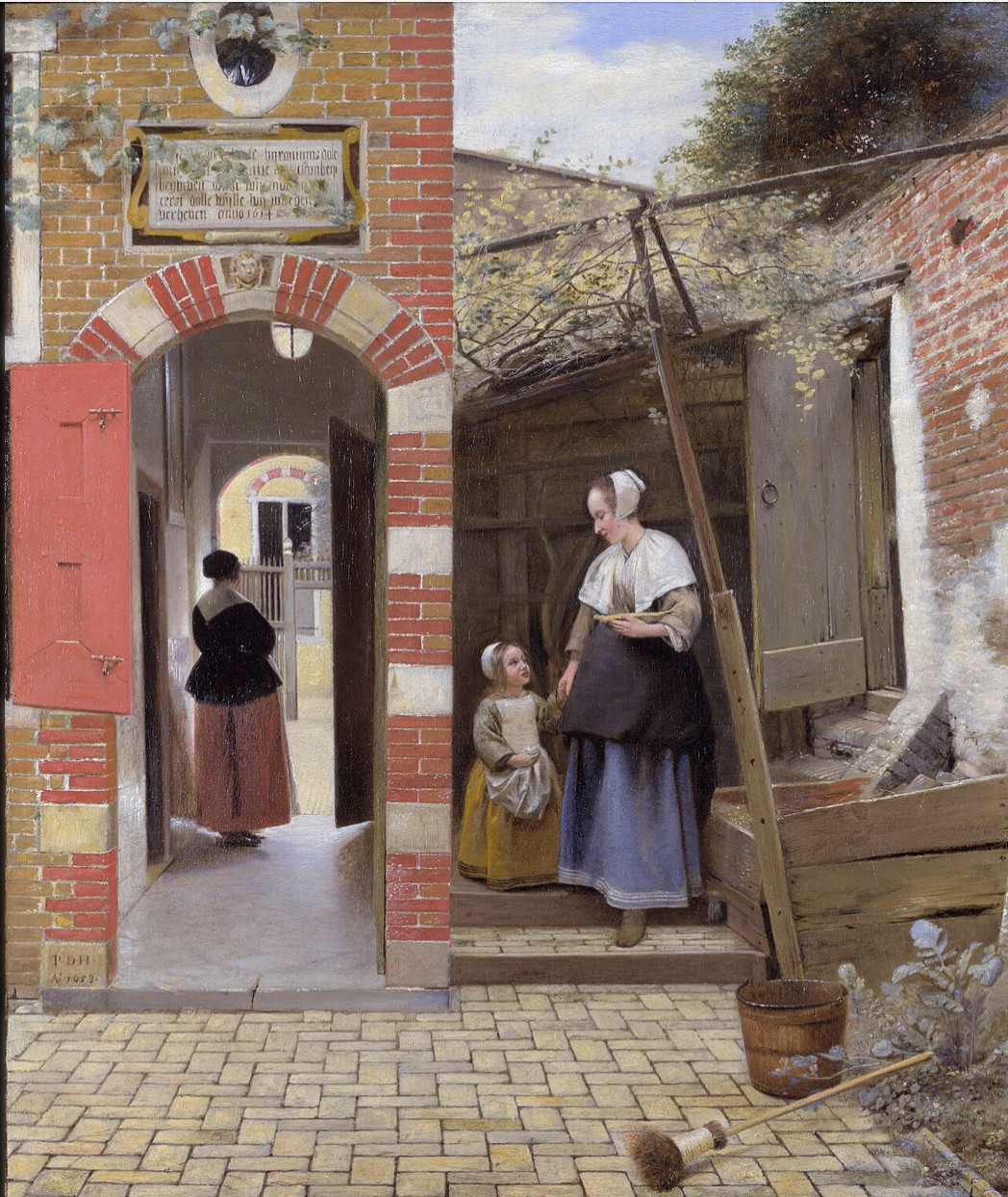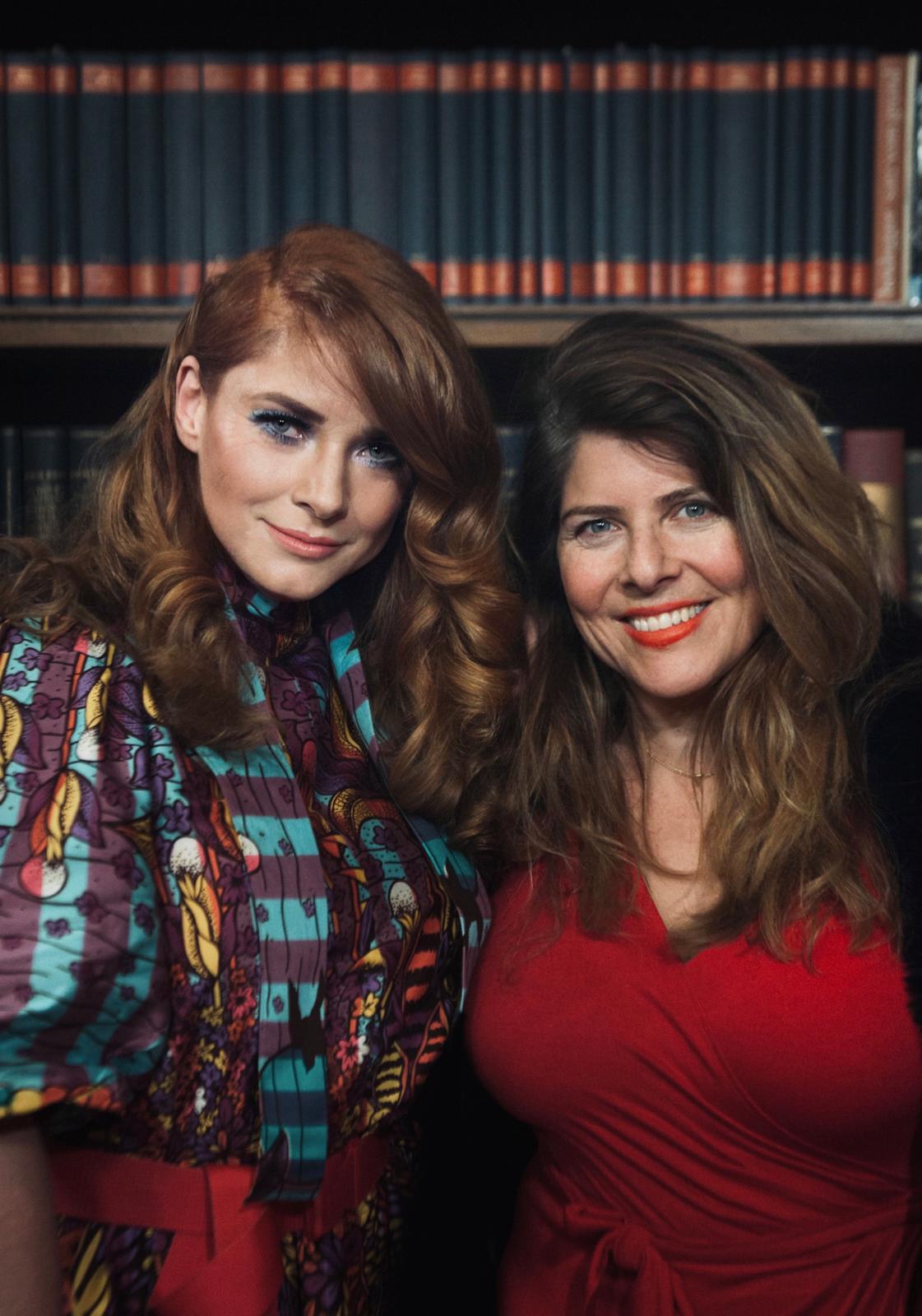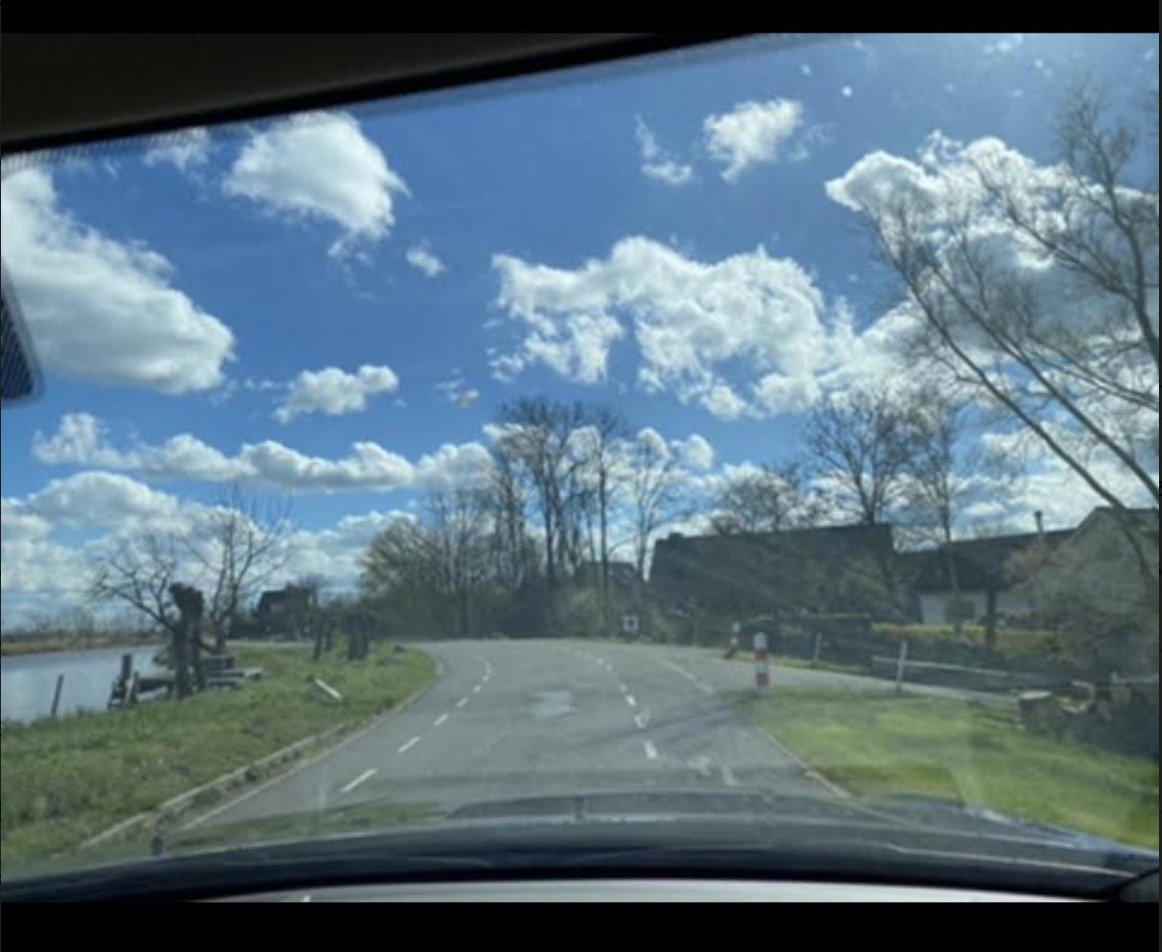By Dr Naomi Wolf
Outspoken with Dr Naomi Wolf
April 3, 2024
Brian and I arrived in Amsterdam on a Monday morning, after two full days in airports. The journey had seemed weirdly challenged from the start.
A wild snowstorm had cancelled our initial flight, and delayed us by a day. When we finally arrived at Schiphol Airport, tired and stressed, and as we sought to enter the country through Customs, Brian was detained in an interview room, and questioned extensively by three different officials. He was fingerprinted and hand-printed, and had extra facial photographs taken. There was no food or water present.
My wonderful Dutch publisher, founder of the alternative press Succesboeken.nl, Fred Meijroos, and his son and colleague Patrick Meijroos, waited patiently with me, just outside of Arrivals, buying me coffees as my anxiety mounted.
At last, after seven hours, Brian was released.
We settled into a lovely hotel in the charming village of Zeist, set in ancient forests about an hour from Amsterdam; and my media tour began. My book Facing the Beast, which is based on my Substack essays here about life in the Dark Era of the present, and which reveals what the WarRoom/DailyClout Pfizer Documents Research volunteers uncovered in their 100 reports based on 450,000 documents - that is, the greatest crime against humanity ever committed - was published in a European country for the first time, and it was also the first time I had been in Europe - indeed, outside the United States - since the 'pandemic.'
Honestly, I had been afraid to travel. As my work as a critic of "lockdown" measures and vaccines gained sometimes global attention, I feared leaving the States; since we have, believe it or not, protections against detention of dissidents in the US that do not apply as soon as one leaves American soil.
At the same time, I was excited to meet the freedom fighters in Europe and to see for myself what resistance to Agenda 2030 tyranny is rising up in this beleaguered and important part of the world - one that, as you may know, I believe is being systematically targeted exactly as the US is, and for similar reasons: Europe and America must be snuffed out, it is my conviction, as bastions of human rights and of the traditions of representative democracy.
Five days of media events followed. I felt powerful mixed emotions as Fred and Patrick drove me to my first interview.
I had visited The Netherlands three times previously. Each time I was overjoyed to be in that country. I love the extraordinary beauty of Amsterdam: its jewel-box-like central area of 17th-century brick houses, tall and narrow, with their decorative rooflines, flowerpots, and painted wooden shutters; the canals and the arched bridges rhythmically spanning them; the canal boats tied languorously alongside the banks; the down-to-earth but quirkily elegant bars and cafes and restaurants, and the tradition of majestic floral arrangements in interiors - long lacy tulips and greenery and budding boughs spilling over the sides of tall, architectural vases. But I had also always loved the sane, open-minded, curious and fair demeanor and tradition of the Dutch people themselves.
The Netherlands' heritage, like so many cultures that are being erased and polluted right now by the Globalists' agenda, is a precious one. The Netherlands did much to establish the modern idea of the individual, in the Middle Ages and early Renaissance. "Bourgeois" has been recast as a derogatory term - by the Marxist influence on our era that distorted so many meanings and thus so much of our history. But the initial development of the "bourgeois" society that originated in the Netherlands was a vastly positive development in human history. It meant the rise of the middle classes with some power of their own; a class of citizens with a say in outcomes, who were not serfs and were not aristocracy. With this notion came the ascendancy too of the idea that hard work and merit, as opposed to just noble birth, could secure wealth and political influence. These are radical, beautiful ideas.
The Dutch also developed a Republic before the French or Germans did; indeed, theirs was the first European Republic. They innovated local representation by citizens and the development of currency exchanges that allowed trade and exploration around the world. The middle-class Dutch family, with its norms of respectability and community contributions, as well as its religious probity, was strengthened by and strengthened in turn this bourgeois ideal as well.
Holland led the way too, as early as the late Middle Ages, with religious tolerance; thriving Jewish communities in Holland were free from the persecution that Jews faced elsewhere in Europe, and in the 16th century, Anglican refugees from England - indeed, Puritans - found shelter in that community as well.
The Dutch colonized what became America; in the Hudson Valley, where we live now, almost all of the place names are Dutch. We live, indeed, on a tributary of the Roeliff Jansen Kill; "kill" derives from Middle Dutch, and means "water channel" or "riverbed." Oddly, the long and important history of the Dutch as our colonizers prior to the English, has been largely written out of US textbooks and history books. Would it be too destabilizing for us to know that some of the first European-Americans were so relatively sane, tolerant and productive?
The Dutch showed admirable resistance to tyranny more recently as well. Though Holland was occupied by the Nazis, Yad VaShem, the Holocaust memorial, is replete with stories of individual Dutch citizens who sheltered Jews — Anne Frank's family being the most famous — at great risk to themselves.
This valuable legacy, this beautiful culture, is being strangled now by Agenda 2030, and the damage is in plain sight.
As we drove and then walked the streets of Amsterdam, I felt the sharp contrast between the "Before Times" — before 2020 — and now. The vibrant, cheery, sunny city I had recalled, was now subdued. There were many fewer people on the street. I understood that Amsterdam is being targeted to become a "fifteen-minute city." Graffiti defaced buildings on the outskirts of town. This shocked me, as the tidiness and civic pride of Amsterdam in the pre-2020 era, had meant that the city had been, at least in my memory, graffiti-free. I had remembered the skies as being often as blue as the blue in Dutch ceramics — a deep mid-blue, with luscious white Cumulus clouds; or else, grey skies that had been poetically wind-driven with shades of light and darkness. This had been a famously lovely sky and clouds captured by Jacob van Ruisdael (View of Haarlem, below), along with centuries' worth of other landscape painters. But the sky seemed now, day after day, to be heavily saturated with biofuel exhaust or with some sort of soupy chemical cloud cover. Thick contrails criss-crossed the skies now, pushing white particulate along, in heavy streaks. The effect was that the whole country, once so famously bright, seemed now to be a world over which a grey shade had been pulled down.
Pieter de Hooch, Courtyard of a House in Delft, 1658
In spite of my sense of a sombre change, my interviews were moving and enlightening. There is a strong resistance movement here, but the forces of opposition in Europe are far stronger than they are in the US. Seeing what is happening to The Netherlands is like looking down the road at our own future, three to five years ahead, if we do not fight back.
I was interviewed by Thierry Baudet and Ralf Dekker, two leaders of "the Resistance." Baudet, a dynamic, dark-haired younger-generation politician, is the founder of what he describes as "the most energetic anti-globalist party", Forum for Democracy. He is a Parliamentarian, along with colleagues in his party. Ralf Dekker is a former Parliamentarian, who is now a leading candidate for the European Parliament.
(Thierry Baudet, above. Ralf Dekker, below.)
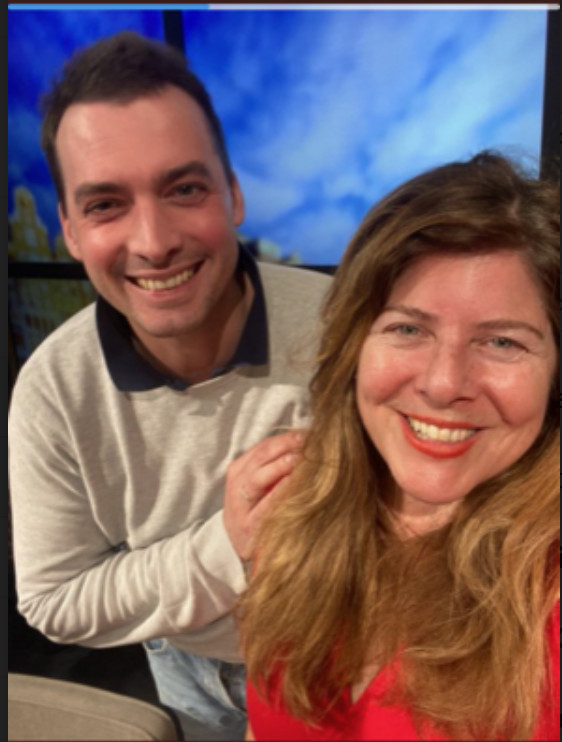
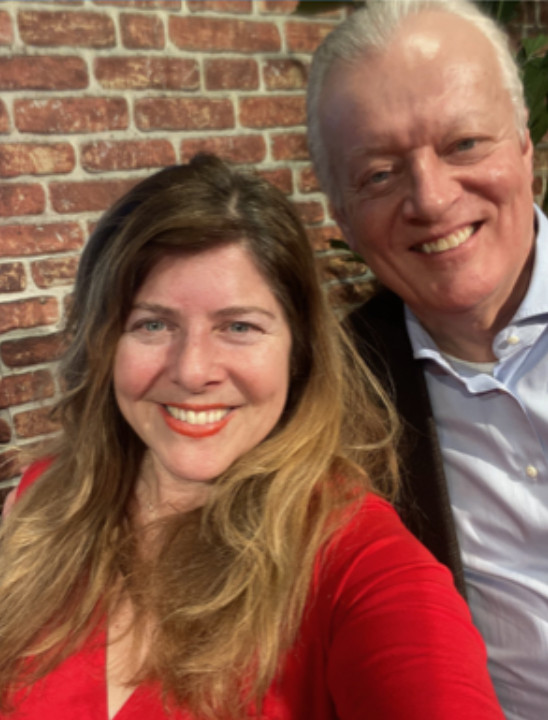
In a well-appointed TV studio in the Herengracht, one of the loveliest streets in Amsterdam, we spoke about global politics, the mRNA vaccines, and the state of liberty in The Netherlands. I focused on the fact that it is very difficult for citizens in the Netherlands to know about legislation affecting them, let alone to lobby for or against it. We spoke about how sovereignty has been drained from national parliaments in Europe, by the meta-structure of the EU, which, as German MEP Christine Anderson also points out, is a meta-European tyranny and not, as its propaganda depicts it, a meta-democracy. Thierry Baudet wishes to have the Netherlands exit the EU. To me, this prospect of exit from the EU is the only chance European nations have, of regaining their sovereignty, and their Parliaments' actual representation for their citizens.
These politicians are routinely described as "far-right" and as "conspiracy theorists." I do not know their entire platform, but from our two-hour conversation, I was struck by the fact that views that would be considered completely mainstream Dutch in 2019 — such as believing the right of the individual, rather than of the state, to determine one's life path; believing in a free press — were now characterized as "far right" or as extremist.
Our next stop was Leyden, another exquisite, historic, smaller town. We stopped at a traditional pancake house, for the massive, thin Dutch pancakes, served with stewed cherries and whipped cream. These filled entire Delft blue-and-white platters about a foot and a half wide. In yet another picture-perfect 17th century streetscape, we entered a townhouse whose interior gladdened my heart: dark heavy rafters, fourteen-foot high ceilings, 18th and 19th century heavy carved wooden furniture; the necessary pot of fresh flowers on a wide wooden table; a tea and coffee area (why do Europeans so much more than Americans understand the value of hot drinks, biscuits, and even bottles of wine, in every workplace?). A fine TV studio was in an adjacent room.
I met the celebrity lingerie designer Marlies Dekkers. She emanated like a ray of sunshine from the first moment we encountered one another. We embraced like long-lost sisters. She is a beautiful woman with long shining copper-colored curls, who wore a fantastic multicolored minidress with a flounced skirt, puffed sleeves and a bodice. I adored from the start her take on femininity. As I followed her into the studio, I caught sight of her red vinyl dancing shoes, with clear plexiglass wedges for the heels.
Femininity is a complex set of myths, but a condition full of promise, and my readers know that I've spent years trying to figure out how a woman can embrace seductiveness, if she so chooses, and pleasure and adornment, and still be strong and serious and effective. Every woman solves this problem for herself, but the festive way Dekkers approached fashion and allure, was, I felt, a delightful work of art. I had not realized at first that she was not only a leading dissident but a very famous lingerie designer. She gave me two of her glossy, beautifully-shot catalogues, and I was impressed that her fashion features managed to depict the models as sensual but not as sex objects — a goal of consciousness and theory that I had sought since my book The Beauty Myth, and that very few designers or artists or photographers have, in my view, attained.
We spoke on camera about the war against humanity in the Netherlands. Her show is donations-supported, and it is part of the thriving alternative media that has arisen in the Netherlands in the presence of the globalist attack and would-be coup.
The next day we drove to another beautiful village, to meet dissident journalist Flavio Pasquino, founder of blckbx.tv. Pasquino is a sophisticated producer and media personality, whose whole career reporting on sporting events, stopped cold in "lockdowns." Outdoor biking events were not permitted! Along the way, I revelled in the flat green fields, edged always with shimmering canals; and I enjoyed seeing white swans walking across the fields, and settling down on the grass. Tulip season was beginning.
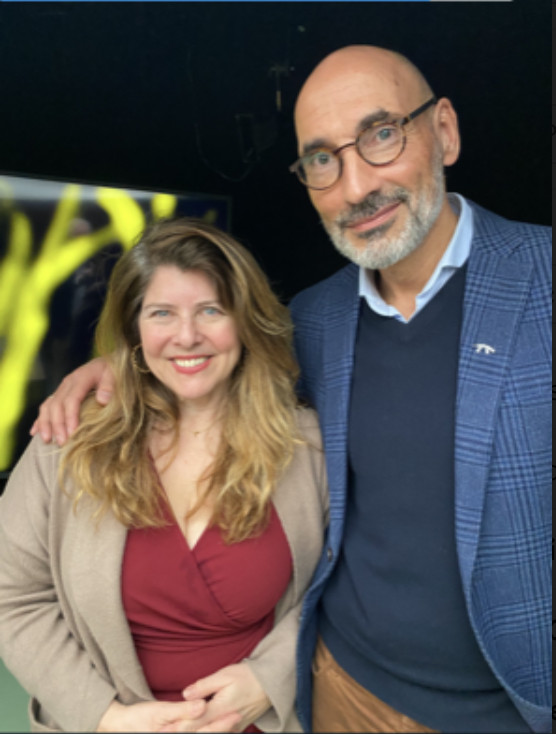
Here you can see the feature Pasquino produced, in which I warn, "If Europe does not wake up, you will all be dead."
Perhaps that message of warning was strongly worded, but in that interview, I became really alarmed, as then, and in subsequent interviews, I learned that the truth — or rather the details - about the dangers of the mRNA injections, has been largely suppressed in Europe. People know in general that something is wrong; but the details I offered from the WarRoom/DailyClout reports, seemed shockingly new to Dutch audiences. I watched as Pasquino, and later, other Dutch influencers and audiences, were being forced to grapple with the questions: How could this be? How could they do this to us?
I realized that America — or many Americans — and Europe, or many Europeans — are at different points in Elizabeth Kubler-Ross' famous five stages of grief. The Dutch with whom I shared the information in the Pfizer documents, were struggling with "denial" and moving into "depression"; while I and many others who had heard the reports on WarRoom and elsewhere, had already crossed that Rubicon, and lived sadly in the final stage of "acceptance." I spent that interview, and later events too, explaining: They really did try to kill us, to sterilize us, and here is why....
The next days were a marathon; I spoke to a live audience of about 130, almost all Dutch, in the lovely event venue Antropia. Though I had spent decades visiting European countries and addressing live audiences, I now had not spoken to a live audience in Europe since I had been cancelled by the White House, via Twitter, in 2021.
The second day of my tour, we had sustained a multi-pronged attack, that was quite scary to experience. Not only had Brian been detained and questioned at length upon our arrival, but after my first interview in Europe about the Pfizer documents, suddenly DailyClout.io was blocked so that few could see or download the WarRoom/DailyClout reports for themselves; and, simultaneously, two of our major vendors told us that they were restricting our business activities. The same day, LinkedIn, Facebook and YouTube all suppressed our content. It was daunting to carry on in the face of that cyber-harassment.
Yet as I gladly received a standing ovation from the audience at Antropia — accepting it gratefully on behalf of Amy Kelly and the Research Volunteers, rather than for myself personally — I was baffled that even with all the forces, from the White House to Google and on down, that were trying to keep us from speaking and listening about lifesaving truths, mysteriously here we were, and the truth had survived it all. I felt that there was something inexplicable about all of this that I could only identify as the activity of grace.
When I signed books afterward, I heard even more about what the Dutch are facing. A farmer, looking shell-shocked, explained that the geoengineering is now so bad and his fields are now so wet, that no seeds would grow. The farmers in his area had to artificially dry out their fields. Another reader explained to me that the Dutch see what is happening around them, in terms of the loss of their liberties, but they are afraid. "What are they afraid of?" I asked persistently, as I did not quite understand the situation. There had been pressure to get vaccinated, I had been told, for instance, but there had not been, outside of certain professions, mandates. Finally, some attendees there explained to me that many people were afraid of losing their benefits.
I thought of how brilliantly the EU had lulled Europe into this seductive, dangerous situation: so much upon which people relied, derived now from the state — that it has created a situation in which many people can be easily cowed, if not outright enslaved.
Our last day, the Meijroos team took me to "polder country", to meet the highly accomplished journalist, Karel van Wolferen. Van Wolferen had written many books — a massive bestseller was The Enigma of Japanese Power.
I was smitten with the "polder" region.
We found ourselves driving through vast meadows reclaimed from the sea waters; the dykes and channels of water that sluiced the landscape, had not changed their shape, my hosts explained, for five hundred years. I was charmed by the small red brick farmhouses, the pollarded pear trees; the white wooden drawbridges every few hundred feet or so; the daffodils planted in even distances along the waterways; the walking paths everywhere along the canals. There is great enchantment in how the Dutch, in this area especially, made every outdoor corner into a kind of open-air room; here is a wooden rain barrel catching water; there is a white wire garden bench; there are purple pansies with black faces, spilling from a basket suspended in the shadow of thatched eaves.
One had the sense that every inch of this small country had been inhabited deeply for centuries; and that every inch had been, and was still, deeply known and loved.
When I entered Van Wolferen's studio/library — it was a converted cowshed, and you could still see where the cow's flanks had rubbed the paint off of the central pillars — I felt that sixty years or more of European civilization, was gathered in one place. The studio/library was wall to wall with the great books of the postwar era, including a bound set of the official history of World War Two, as well as a set of the very rare and influential avant-garde publication, Encounter magazine. Van Wolferen had not acquired these as a collector, but organically, as a reader.
It was intoxicating to see such a library — and I felt a pang for the bright light of European culture and of this accumulated knowledge and critical tradition that that library represented. The books seamlessly were in conversation with each other, decade by decade. All of of that, I mourned, was being metaphorically torched, in the world outside those doors.
Van Wolferen and I had a robust two-hour discussion, including a debate, about the state of civil liberties. We disagreed about China, and a few other points; but the exchange was illuminating. I was honored to see that his magazine had several times featured the WarRoom/DailyClout Volunteers' work on the Pfizer Papers — indeed, I appeared in one number in a cartoon. I was relieved that the work was being reported. We labor away in the United States, siloed by the algorithms that divide us; and we do not know if the freedom movement in Europe knows anything about our work. By the same token, the great work of the freedom movement in Europe is also concealed from us, by similar algorithms.
(Karel van Wolferen, left; my publisher Fred Maijroos, right. The white structure behind us is a drawbridge.)
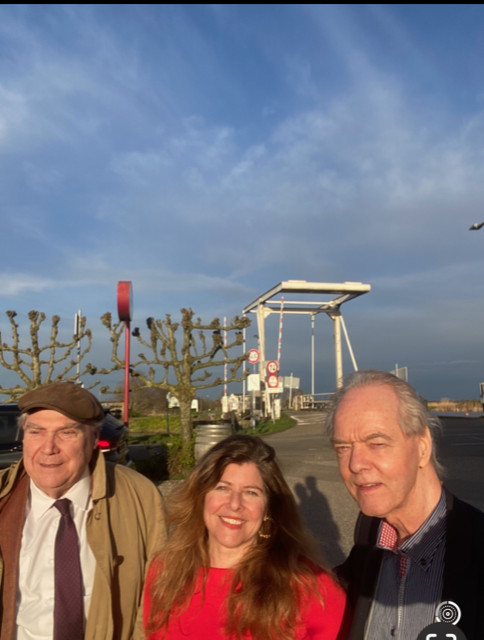
Van Wolferen, the Meijroos team and I ended the day in a restaurant overlooking a canal. The building had been an inn for three hundred years. I had to try Dutch gin. Upon experiencing the taste of bitterballen, a sublime Dutch delicacy containing minced beef in cream sauce; the luscious lamb dish, the sweet roasted parsnips, and upon admiring the whipped cream served with the trifle for dessert, I felt that there was hope after all. All around me the Dutch were enjoying their beautiful traditional cuisine, admiring their magnificent landscape, speaking their venerable language, with its soft fricatives, that was both addictive and restful to listen to. People laughed, and talked deeply — more deeply than my own people did these days — over the candlelight. (I reflected that whatever had been in the injections imposed on that population, perhaps the effects were milder than was the damage done to us in the US, as the Dutch on the whole seemed less ill, less pale, and less zombie-like than did many of us in America. But all of those observations were impressionistic.)
When it was time for Brian and me to leave the country, we were sorry. We'd miss our new friends. The Meijroos team, after kindly waking at dawn to get us to the airport, drove us through the green fields, in a grey rain.
I'd been to Holland, as noted above, several times; each time, before I'd been cancelled for "wrongthink", the major news sites had covered my work and reported on my visit. This time around, however, except for the alternative media, there was absolute silence from the mainstream press.
I'd assumed that my message was unwelcome, and unpopular in general; or that it had gone mostly unheard.
But again — somehow the truth lives its way into a community in need of the information, even after every massive effort has been made to stifle and suppress it. Again, I do not understand how.
On our final day, I had been standing outside of a cafe on the Herengracht, waiting for my publisher's car to locate me.
"Naomi?" asked a woman in her thirties, whom I did not know. She wore a nice camel-colored raincoat, and had tousled brown hair, and looked like someone who walked a great deal in the wind and sun. She was one of a pleasant-looking couple. She paused on the sidewalk and peered curiously into my face.
"Yes?" I replied cautiously.
"Good job," she said.
